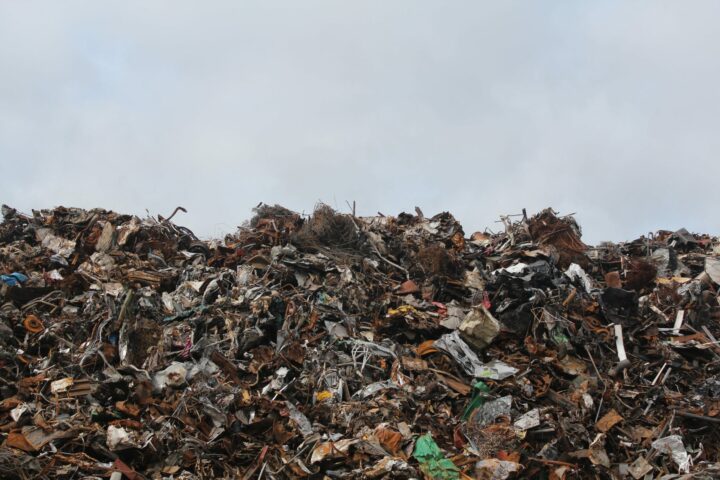The following contribution is from another author.
For too long, waste management has focused narrowly on collecting rubbish and redirecting it out of sight. But in nature, there is no such thing as waste – every output gets reintegrated as input somewhere in the systemic flow. By emulating these circular dynamics, human societies too can transform the concept of waste.
The old linear take-make-dispose models are being reshaped into sophisticated closed-loop processes for material sustainability.
Supportive policies, incentives and technologies now allow envisioning a future where products and processes synergize with natural cycles rather than disrupting them. Even the term ‘waste management’ starts feeling outdated, an invitation to reimagine systems where nothing goes to waste!
Defining Efficient Rubbish Removal
The outdated view of waste management as a linear process of rubbish collection and disposal is being replaced by circular systems that maximize resource utility. The new ethos treats trash as an asset rather than liability. It focuses first on reducing waste generation through smarter design and minimalism.
Any remaining waste gets channeled into renewal processes for energy, nutrients or material reuse. Supported by technology and community participation, this regenerative approach transforms wastelands into thriving spaces that enrich lives without harming nature. Waste management is thus being reinvented from root cause to final outcome.
Carry on to read about Dirt Cheap Rubbish Removal and how to embrace efficient waste management methods for your future home.
Evolvement of Waste Management
Growing awareness of environmental issues and advances in waste management technology have dramatically shifted perspectives.
There is now greater emphasis on curbing waste generation from the start by promoting minimalist living and sustainable practices such as composting and conscious shopping. At the same time, existing waste is being managed more effectively through modern methods like recycling, incineration and carefully monitored landfilling.
Societal attitudes towards waste and recycling have changed considerably too. Where earlier it was common for households to throw everything into the same bin, now there is wider adoption of waste separation and recycling due to greater environmental conscientization.
Governments are also driving technology and infrastructure improvements in the waste sector through supportive legislation and policies aimed at resource sustainability.
Reading About Dirt Cheap Rubbish Removal
The term “dirt cheap” does not necessarily mean irresponsible trash disposal. Rather, it signifies affordable services that follow all regulatory requirements for waste management while still providing cost-effective rubbish removal.
The challenge lies in balancing economic feasibility with environmental and social duties. This requires not only compliance with disposal regulations but also adoption of innovative practices for waste reduction and recycling, without compromising on service quality.
Importance of Timely Trash Disposal
Waste must be disposed of promptly to prevent accumulation and associated health hazards. Standing refuse can draw rodents, insects, and other pests, leading to the spread of illness. It can also cause foul odors and, if left unchecked, result in litter on streets and in public areas. In addition to these clear health risks, a buildup of rubbish poses potential fire hazards. It is therefore critical to have a regular, efficient system for clearing waste from homes.
Allowing garbage to pile up not only poses a risk at the collection point but can also have cascading impacts if it enters storm drains or water bodies. Rotting organic waste releases methane, which is hazardous and exacerbates climate change. Through timely removal, proper treatment and routeing of trash, some of these downstream effects can be alleviated.
Impact on Residential Sanitation
More than just removing rubbish, optimized waste management can vitalize communities. Well-designed collection systems don’t just keep neighborhoods cleaner but enhance aesthetics and pride. Through participating enthusiastically alongside municipalities, households catalyze a culture of sustainability. Sanitary homes are vital for health.
This ripples out as improved public health and environment. Soon, the appeal and longevity of infrastructure also gets a boost as public drainage, roads and parks thrive in the absence of litter and dumping.
As minds shift from indifference to solution ownership, residential waste management turns grassroots agent uplifting into a wider habitat. It stands redefined from dreary municipal chore to vital socio-civic ecosystem lever upholding shared well being and prosperity.
Role of Technology in Waste Management
As recycling becomes mainstream, it’s easy to get recycling wrong despite best intentions. However, technology plays a pivotal role in contemporary waste management to enhance recycling efficacy. Advanced sorting systems can now separate waste into different categories for proper disposal or recycling. Moreover, transformative technologies like waste-to-energy conversion have the potential to transform non-recyclable materials into valuable energy.
In short, technological progress in waste management is paving the way to manage rubbish more responsibly and efficiently. As these technologies continue advancing, they will likely offer even greener and more sustainable solutions to the growing problem of waste.
Some innovative technologies that hold promise are AI-enabled robotic waste sorters that can identify and categorize the various components of waste automatically. Sensor-based solutions can also enable intelligent monitoring of public waste bins and optimize cleaning routes. Data analytics platforms are being developed to gain a granular view of waste generation patterns within cities.
The Future of Rubbish Bins
Even the humble rubbish bin is evolving. Modern bins are designed not merely to hold trash but also to sort it at the source through multiple compartments for various waste types like general refuse, organic matter and recyclables.
Looking ahead, further innovations could emerge like smart bins that communicate when full or feature built-in sensors to identify and sort waste. Such advancements can greatly improve recycling by preventing cross-contamination of recyclable materials with other rubbish.
More and more public places are installing segregated waste bins to enable responsible disposal as per material type. Some localities have also introduced ‘bin-less’ systems with centralized waste suction units connected underground to facilitate collection by services like these. As technology develops, automated waste processing integrated with collection could be the next frontier.
New Innovations in Waste Disposal
In recent years, some innovative approaches have emerged for managing waste, from converting organic matter into compost or biogas via bio-digestion to automated waste sorting or transforming plastic into roads and construction materials. As technology progresses and new solutions arise, smarter methods for handling rubbish become viable.
Embracing these innovative solutions will bring people closer to achieving sustainable waste removal. Startup ecosystems focused on sustainability have proliferated globally. These use science and engineering to tackle pressing environmental issues around water, energy and waste through creative, market-based solutions.
Consumers can play a role by judiciously investing in or crowdfunding promising green startups that resonate with their values. Large companies are also unveiling disruptive innovations in global waste management via improved collection mechanisms and sustainable processing technologies.
Rubbish Handling Safety Measures
While responsible rubbish handling is imperative, safety is equally important. For instance, hazardous wastes like electronics or batteries should not be discarded with regular trash due to contamination or fire risks. Similarly, sharp objects require careful disposal to prevent injuries.
Awareness of such precautions ensures the safe handling of waste by all people involved, including collection and disposal personnel. Hence, a safe approach to waste management benefits everyone.
Clear labeling and secure storage protocols for toxic or flammable waste streams should be standardized across municipalities. Stronger legislation is required around hazardous waste handling compliance by commercial generators.
Closing Thoughts
Clearly, efficient rubbish removal encompasses more than just trash disposal. It is a holistic process including waste reduction, recycling, recovery and safe practices. Embracing this mindset at home can significantly contribute towards a cleaner, healthier future for all.
Therefore make your own efforts towards a sustainable, waste-free world by adopting efficient rubbish removal measures today.
















